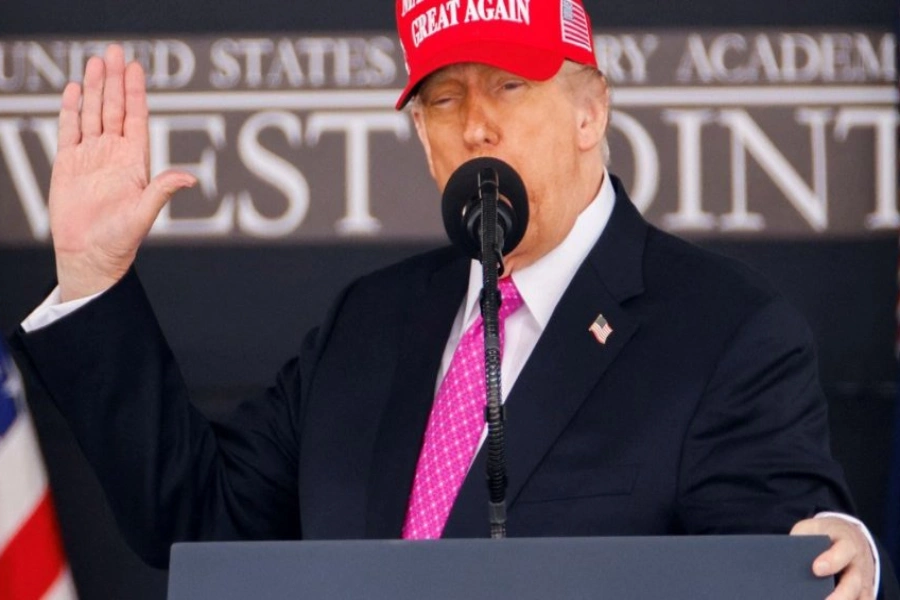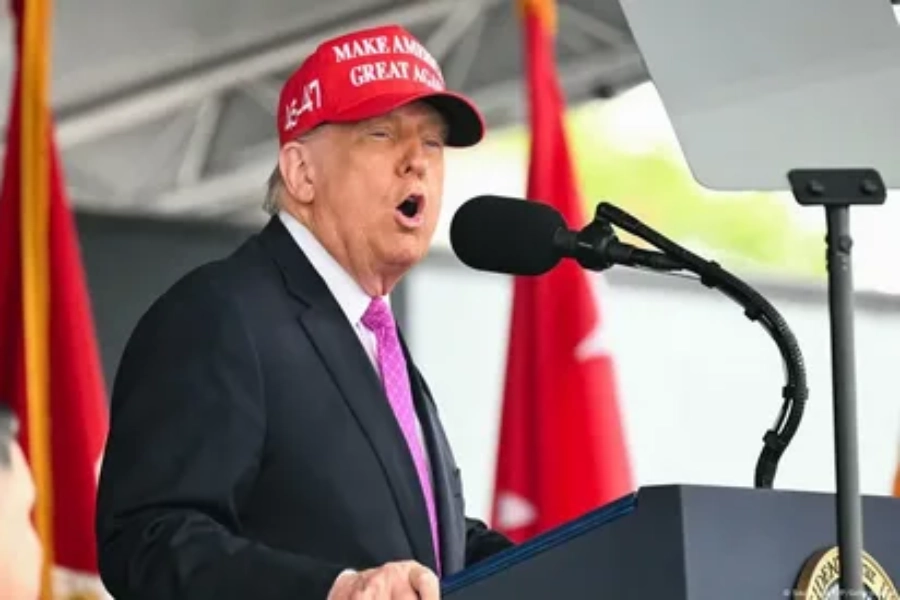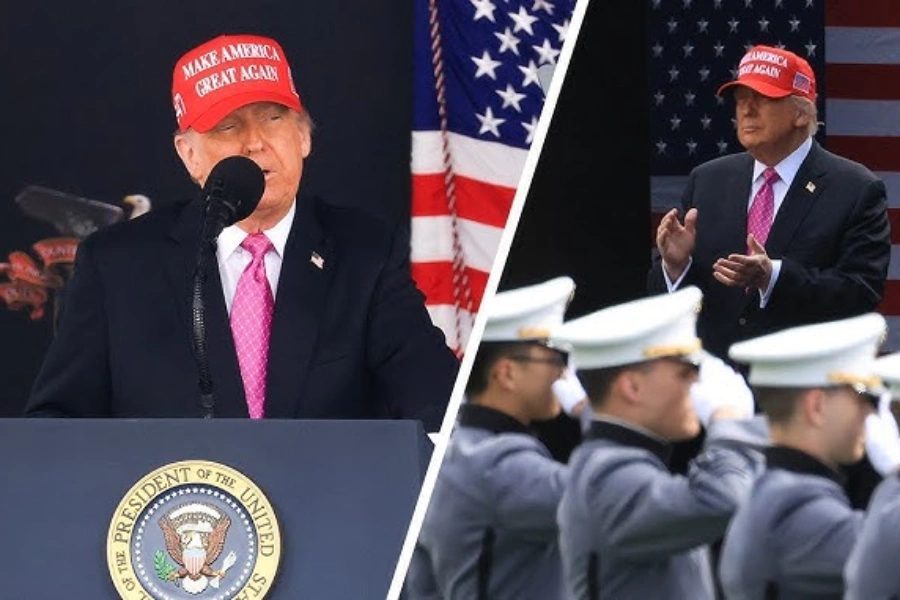President Donald Trump delivered a high-profile commencement speech at the U.S. Military Academy at West Point on May 24, 2025, a speech that sparked widespread attention amid ongoing debates over diversity, equity, and inclusion (DEI) programs at military academies. This event not only marked a significant moment in military education but also raised complex legal and policy questions about the role of such initiatives in federal institutions.
In this article, we provide a detailed analysis of the Trump West Point speech, explore the legal ramifications of recent policy shifts affecting military academies, and discuss the broader implications for military culture and education. We will also address frequently asked questions to clarify the controversies surrounding this topic.

Background: What Was the Trump West Point Speech About?
President Trump’s speech came at a time when his administration has been actively rolling back diversity and inclusion efforts across various federal agencies, including the Department of Defense. Key actions include the removal of diversity-related curricula and the disbanding of student groups at West Point such as the National Society of Black Engineers and the Society of Women Engineers.
These moves followed executive orders aimed at eliminating what the administration refers to as “woke” ideologies within military institutions. Critics argue that these policies undermine efforts to foster an inclusive environment essential for unit cohesion and morale.
During his speech, Trump highlighted the importance of tradition, patriotism, and meritocracy in the military while defending the administration’s stance against DEI programs, which he claims detract from military readiness.
Legal Analysis: What Are the Rights and Limits of Diversity Policies in Military Academies?
Federal Authority and Military Autonomy
Military academies operate under federal jurisdiction and have historically been granted broad authority to set policies that ensure discipline and readiness. The Department of Defense (DoD) can issue directives affecting educational programs, but these must comply with constitutional protections, including equal protection under the law and First Amendment rights.

The Executive Orders and Their Legal Validity
President Trump’s executive orders serve as the foundation for rolling back DEI initiatives. These orders are legally binding but subject to judicial review if challenged in courts. Legal scholars debate whether such orders infringe on free speech or discriminate against protected groups by dismantling programs aimed at combating systemic inequality.
Impact on First Amendment Rights
Disbanding student clubs and removing literature related to race and gender issues raises concerns about censorship and suppression of speech in academic settings. While military academies are unique environments with different standards than civilian institutions, students retain constitutional rights, albeit sometimes limited in scope due to military necessity.
Potential Legal Challenges
Civil rights groups and affected students may seek remedies through lawsuits alleging discrimination or violation of educational rights. Courts will weigh the government’s interest in military effectiveness against individual rights, a delicate balance historically difficult to navigate.
Broader Implications for Military Culture and Recruitment
The shift away from DEI policies could affect recruitment and retention, especially among minorities and women who may feel less welcome in an environment perceived as hostile to diversity. This could undermine efforts to build a modern, effective military force that reflects the country’s demographics.
Moreover, critics argue that ignoring systemic issues may harm unit cohesion rather than help it, as unresolved tensions can fester under the surface. Proponents of the rollback assert that a focus solely on merit and traditional values promotes fairness and efficiency.
Expert Opinions and Perspectives
Dr. Laura Simmons, a professor of military law at Georgetown University, explains,
“While military academies have unique needs, completely removing programs addressing race and gender issues may overlook the realities of bias and discrimination that impact performance and morale. Legal challenges are likely as affected parties seek to protect their rights.”
Meanwhile, retired General Mark Thompson supports the policy changes, stating,
“The military must prioritize readiness and discipline. Diversity programs that inject political ideology risk divisiveness, which the chain of command cannot tolerate.”
What This Means for Future Military Graduates
The 2025 West Point graduating class enters a military landscape undergoing rapid cultural shifts. Graduates will need to navigate these changes as they take on leadership roles, balancing respect for tradition with an evolving understanding of inclusivity.
Conclusion
The Trump West Point speech highlights a pivotal moment in the ongoing debate over how best to shape the U.S. military’s culture and educational environment. While the administration’s push to eliminate DEI initiatives aims to reinforce traditional military values, it raises significant legal and ethical questions about inclusion, free speech, and equal opportunity.
Understanding the legal frameworks and societal implications is essential for military leaders, policymakers, and the public as this issue continues to evolve. As the military prepares for the challenges of the 21st century, finding the right balance between tradition and progress remains a critical task.
FAQ
1. What was the main message of Trump’s West Point speech?
President Trump emphasized patriotism, military tradition, and meritocracy while defending the rollback of diversity and inclusion initiatives at military academies.
2. Why were diversity programs disbanded at West Point?
The Trump administration, via executive orders, aimed to remove what it considers divisive or politicized programs, arguing they detract from military effectiveness.
3. Are these policy changes legal?
The executive orders are legally valid but may face challenges related to constitutional rights, including freedom of speech and equal protection.
4. How do these changes affect military students?
Some students lose support networks and educational resources, potentially impacting morale and the diversity of perspectives in military leadership.
5. What are the potential consequences for military recruitment?
A less inclusive environment might deter minorities and women from joining or staying in the military, affecting diversity and retention.
6. Can these policies be reversed?
Future administrations could reinstate DEI programs or modify policies depending on legal outcomes and political priorities.

